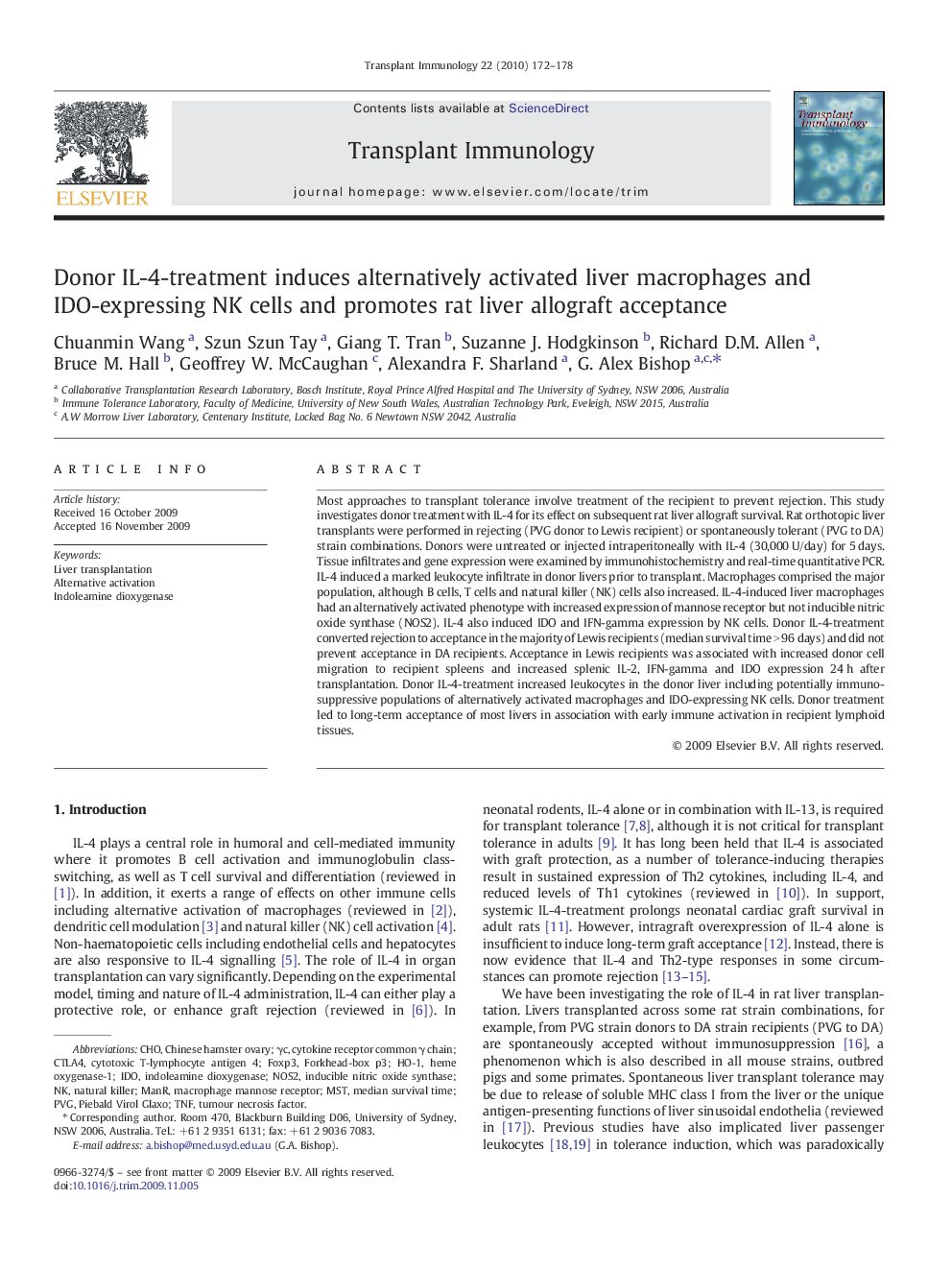| Article ID | Journal | Published Year | Pages | File Type |
|---|---|---|---|---|
| 3392365 | Transplant Immunology | 2010 | 7 Pages |
Abstract
Most approaches to transplant tolerance involve treatment of the recipient to prevent rejection. This study investigates donor treatment with IL-4 for its effect on subsequent rat liver allograft survival. Rat orthotopic liver transplants were performed in rejecting (PVG donor to Lewis recipient) or spontaneously tolerant (PVG to DA) strain combinations. Donors were untreated or injected intraperitoneally with IL-4 (30,000Â U/day) for 5Â days. Tissue infiltrates and gene expression were examined by immunohistochemistry and real-time quantitative PCR. IL-4 induced a marked leukocyte infiltrate in donor livers prior to transplant. Macrophages comprised the major population, although B cells, T cells and natural killer (NK) cells also increased. IL-4-induced liver macrophages had an alternatively activated phenotype with increased expression of mannose receptor but not inducible nitric oxide synthase (NOS2). IL-4 also induced IDO and IFN-gamma expression by NK cells. Donor IL-4-treatment converted rejection to acceptance in the majority of Lewis recipients (median survival time >Â 96Â days) and did not prevent acceptance in DA recipients. Acceptance in Lewis recipients was associated with increased donor cell migration to recipient spleens and increased splenic IL-2, IFN-gamma and IDO expression 24Â h after transplantation. Donor IL-4-treatment increased leukocytes in the donor liver including potentially immunosuppressive populations of alternatively activated macrophages and IDO-expressing NK cells. Donor treatment led to long-term acceptance of most livers in association with early immune activation in recipient lymphoid tissues.
Keywords
Related Topics
Life Sciences
Immunology and Microbiology
Immunology
Authors
Chuanmin Wang, Szun Szun Tay, Giang T. Tran, Suzanne J. Hodgkinson, Richard D.M. Allen, Bruce M. Hall, Geoffrey W. McCaughan, Alexandra F. Sharland, G. Alex Bishop,
